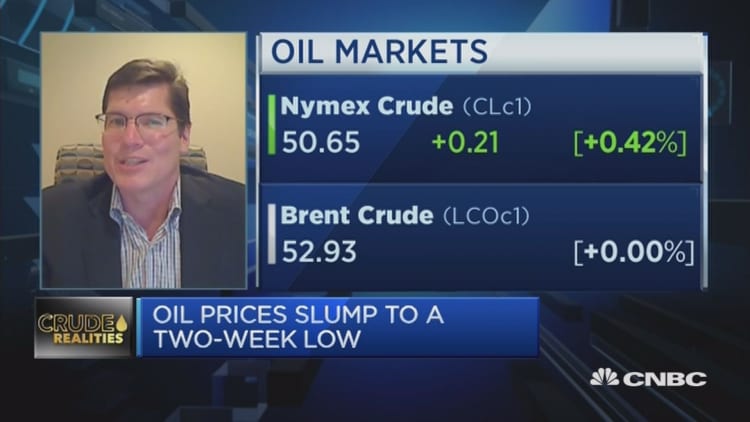Oil prices were mixed on Thursday in a seesaw trading session, as investors weighed rising U.S. production against comments from leading Gulf oil producers that an extension to OPEC-led supply cuts was likely.
Brent futures were last up 3 cents to $52.96 a barrel. U.S. crude futures settled down 17 cents at $50.27 a barrel.
OPEC members Saudi Arabia and Kuwait signaled that the Organization of the Petroleum Exporting Countries and other producers, including Russia, would likely extend their oil output cut beyond June.

At a press conference in the United Arab Emirates, Saudi Energy Minister Khalid al-Falih said that "there is consensus building but it's not done yet."
James Williams, president of energy consultant WTRG Economics in London, Arkansas, said the minister's bullish statement did not lift prices much because of growing U.S. shale production.
You would have thought that that would have reversed yesterdays fall, but it didnt," he said. "Were getting a little bit of price recovery, but it's still not enough to reverse the shale threat.
On Wednesday, crude prices tumbled more than 3.5 percent as U.S. government data showed domestic crude stocks fell less than expected in the latest week and gasoline stocks posted a surprising 1.5-million-barrel build.
The market sentiment appears to be that the increase in U.S. shale production outweighs the OPEC action and the market is keeping the loss we had yesterday," he said.
U.S. crude oil production rose to 9.25 million barrels per day, official data showed, up almost 10 percent since mid-2016. U.S. inventories of 532 million barrels remained near all-time records reached in March.
Patrick Pouyanne, chief executive of French oil and gas giant Total, said on Thursday prices could fall again by the end of the year, citing U.S. shale production.
"The rebalancing in U.S. crude stocks may have got underway, but concerns about further gasoline builds are rife even as the U.S. summer driving season shifts up a gear," said Stephen Brennock, an analyst with PVM Oil Associates.
North Korean state media warned the United States of a "super-mighty preemptive strike." John Saucer, vice president of research and analytics at Mobius Risk Group in Houston, said the market was not jittery, pointing to relatively subdued fixed-price activity and stable options premiums.
Five of the last trading days weve been lower," he said. "That doesnt really signal a market thats too concerned about geopolitical hotspots.

